
A Production Production©1998–2025 Dustin Putman

|

 |


I'm going to have to be careful not to blink so much anymore. Every time I do, another year seems to zip by. My first instinct in regards to 2011's crop of cinematic fare is to call it a pretty good year—better than at least the last five years in regards to the amount of solid or great films released and the fewer number of truly terrible offerings. Taking a closer look at the numbers, the year was certainly on the upswing from the previous twelve months. From January 1 to December 31, 2011, I reviewed 196 movies, which certainly sounds like a new record for me (last year, my count total was only 166).  Of those, there were 15 that rated three-and-a-half or four stars (up from 12 the previous year, even with 2009, and significantly higher than the 11 from 2008), and 20 that received one star or less (not too shabby, considering that's only two more than 2010 when I saw 29 fewer movies). The true proof of how good the year was, however, was in the act of putting together my Top 10 list. Usually it takes no time at all. This year, it was a painstaking process because there were actually films that I felt deserved to be on it, but that I couldn't quite find a spot for. I don't remember that ever happening before, unless I blocked the trauma of it all out. Oh, and one other thing: it is interesting to note that out of my entire Top 10, the highest-budgeted film cost $32.5 million, while the lowest was priced at just $300,000 (the rest were somewhere in the middle, usually on the lower end). Again, I'll say to Hollywood: you can throw as many overpriced sequels, remakes and comic book adaptations at audiences as you want, but it's not going to buy you a good film. The true value is in originality, passion, a solid script, and all-around talent. Combine those four things together, and you can't go wrong. The format hasn't changed from my previous "Year in Review" essays. In order, first I list the best performances of the year, the ones that made the biggest mark on my consciousness (with the ultimate winner highlighted in red), followed by my picks for the single most overrated and underrated films of the last twelve months. Topping things off are my complete lists for the absolute best and worst motion pictures 2011 had in its arsenal. There might have been some very, very bad films this year, but there seemed to be as many, if not more, genuinely good ones—and some better than that. Bring it, 2012!
(my pick for the absolute best is indicated in red)
Best Actor
Best Actress
Best Supporting Actor
Best Supporting Actress

"The Tree of Life," directed by Terrence Malick, is said to be a love-it-or-hate-it kind of experience. Upon release, one theater chain even posted a notice warning customers that there would be no refunds if they didn't like it. That, of course, is just silly, and anyone who appreciates cinema as more than just a throwaway form of entertainment has no choice but to at least admire the grand ambition and intentions of its auteur filmmaker. That, however, is different from calling the film successful. Over thirty years in the making from initial idea to finished product, "The Tree of Life" dares to explore no less than the wonders of life, the mysteries of death, and the very creation of the universe. Alternately gorgeous and frustrating, the picture abruptly drops its staggering depiction of the planet's evolution by the 45-minute mark for an undernourished and familiar family melodrama where development is limited, dialogue is scarce, and the experiences of three young brothers in the 1950s is boiled down to countless voice-overs and montage encapsulations. Why is the bulk of the running time dedicated to a single year in their life? Why is Sean Penn, appearing in a cameo as the grown eldest brother, introduced and then given nothing to do? And what is up with the ending, a vision of the afterlife as sudsy and amateurish as it is shockingly ineffectual? "The Tree of Life" could have been one for the record books, but it heartbreakingly misses the mark.
Overrated Runners-Up: Attack the Block; A Dangerous Method; Fast Five; The Girl with the Dragon Tattoo; Midnight in Paris; The Muppets; Warrior; Weekend

"The Woman," directed by Lucky McKee, premiered at the 2011 Sundance Film Festival before seeing release in a small handful of theaters in October via Bloody Disgusting Selects. The film was acclaimed by those who saw it (not many), and would have likely made a much bigger splash with more money, advertising and promotion behind it. In the story of an increasingly dysfunctional family and a decidedly dangerous feral woman chained up in their storm cellar, "The Woman" combined the suburban ennui of 1999's " American Beauty" with the macabre, graphically violent nature of 2005's " High Tension." McKee, who previously made 2003's unforgettable cult thriller " May," collaborated here with writer Jack Ketchum, the two of them conspiring on a tone and premise and mash-up of genres that had never quite been tackled and achieved with this much ingenuity and tragic reverence. Is it horror? Is it drama? Is it black comedy? "The Woman" is all of the above and none of them at all, defying pat descriptions and easy conclusions. Once discovered, it won't be easily forgotten.
Underrated Runners-Up: Dirty Girl; Hesher; Just Go with It; Larry Crowne; Scream 4; The Sitter; Skateland; Something Borrowed; Take Me Home Tonight; Troll Hunter

 | The Darkest Hour
When Summit Entertainment—the studio that proudly screened "Breaking Dawn Part 1"—announced that their Christmas tentpole, the alien-invasion thriller "The Darkest Hour," would be opening cold, it was a tell-tale sign that something had gone horribly wrong. Indeed, it had. Efficient effects work and the thankless participation of some good young actors who should have known better (Emile Hirsch and Olivia Thirlby among them) are the only indicators that this is a big-budget production. Everything else screams of amateurishness, the most simple of shots so flatly and shoddily filmed that it often seems to be a direct-to-video knock-off. Rare instances of emotional content are treated like petty, gnat-like bothers and quickly skimmed over for another scene of indifferently-portrayed destruction. A jumble of cringe-inducing writing and all-around idiocy. the film would be a laughing stock of inanity were it not so thoroughly unsatisfying. On the evidence here, no one would be able to guess that director Chris Gorak previously helmed 2007's acclaimed apocalyptic indie "Right at Your Door." Maybe the extra money stole his soul. |
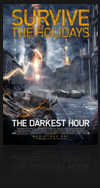 |
 | Sucker Punch
Full of flash and fury and deadening apathy, Zack Snyder's "Sucker Punch" was almost a dead-ringer for a video game demo in the grim, grimy mold of "Resident Evil" and "Silent Hill." Why "almost?" Because the film in question didn't have anywhere near the same level of foreboding and fumbled horribly at building apprehension or, really, any emotional response. Chaotic and loud but never the least bit exciting, Snyder's meretricious, nonsensical, CGI-heavy fiasco was tedious enough to become a chore and so empty it constantly threatened to weave a glaze over most audiences' eyes. Why should we care about the garish world of metallic haziness created when its action set-pieces are established as (1) taking place in the institutionalized characters' minds, and (2) said characters are rendered indestructible, super-powered warriors? I'm still waiting for an answer. |
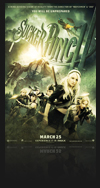 |
 | Monte Carlo
Fraud. Theft. False Impersonation. Kidnapping. If this sounds like a promising start to a twisty white-knuckle thriller, think again. It's actually just a handful of the crimes committed by three young women (Selena Gomez, Leighton Meester, Katie Cassidy) vacationing overseas in the rancid teen comedy "Monte Carlo." The mind reels at how a film as misguided as this one could be set up at a major studio (20th Century Fox, in this case), cast, shot, edited, and sent out to theaters for mass consumption without a single person involved questioning its immorality and wrong-headed mixed messages. That it was also idiotic, tone-deaf and charmless almost came as asides to the wreckage on display. |
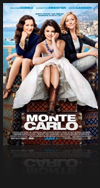 |
 | Season of the Witch
Directed by Dominic Sena as if he were a Uwe Boll disciple in training, "Season of the Witch" lived up to the time-tested theory that the first film released in any one calendar year will likely end up being one of its worst. Witches, Crusades and plagues intermingled with laid-back contemporary curse words and phrases, Nicolas Cage's long blond wig with ringlets made him look like a Shirley Temple drag queen impersonator, helmets hilariously resembled the Liberty Bell, multiple chintzy battles were shot on the same soundstages, and there was nary a moment of suspense or excitement to accompany any of it. Good for a laugh, to be sure, but that's probably not the reaction its makers were going for. |
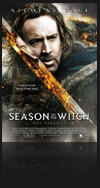 |
 | Priest
"Priest" would have been bad in any format, but its theatrical 3-D post-conversion turned a poorly made, rotely scripted, haphazardly truncated turkey into an ugly-looking, poorly made, rotely scripted, haphazardly truncated turkey. A vampire movie for lovers of "Season of the Witch," this watered-down sci-fi/western/action/horror monstrosity starring Paul Bettany was dispassionate enough to leave one scratching their head over how director Scott Stewart could have gotten the job. He showed no understanding of rhythm, pacing and the building of tension while signifying that he also had no interest in his own story. The barebones, empty-souled screenplay was of no help, nor was the PG-13 rating that constantly and blatantly kept censoring the material. "Priest" was an irritating, lifeless experience, so shoddy as to suck the fun right out of moviegoing. |
 |
 | Cars 2
Pixar's luck finally ran perilously out with the infuriating "Cars 2," director John Lasseter ruthlessly betraying every last thing the big-hearted original—a poignant exploration of the value in appreciating the journeys just as much as the destinations in life—so passionately stood for. Making no more than a cameo in the opening and closing scenes, the quaint, untradable charms of Radiator Springs and most of the lovable characters who resided there were promptly traded in for a moronic, soulless, globe-trotting spy story. Heart was replaced by surface-level chaos and greed. The beauty of one's natural surroundings was an afterthought as shootouts involving missiles and machine guns took over. A car was strapped with a ticking bomb about to detonate, while at least a few others met violent, fiery deaths. "Cars 2" spit directly in the face of every child and adult who loved and appreciated the first "Cars" for what it was, and what it had to say about life in the fast lane not always being what it's cracked up to be. This cruel continuation hadn't any time for the journey at all, and its destination was straight into a black hole. |
 |
 | The Hangover Part II
Some people loved 2009's "The Hangover," seeing it as a raucous grab bag of laughs and good times, but there was a mean streak about the Todd Philips pic that, for this critic, destroyed any potential it might have otherwise had. The male characters were cruel, sexist, homophobic, obnoxious, criminal dipshits, while the females were painted as either harpy shrews or prostitutes. The actors, without anything witty to say or do, were forced to preen and mug for the camera for 100 minutes. If the time spent with them was enough to pretty much grow to despise the human race, the film was admittedly well-paced and could have been even more painful than it was. Cue "The Hangover Part II," which manages the impressive feat of both lazily rehashing the original beat for beat while making its predecessor seem not so bad in hindsight. Without a solitary laugh in sight, it's safe to say that a person couldn't write worse jokes if he or she tried. There was an ultra-cynical cash-grab mentality to the whole enterprise worthy of turning stomachs. |
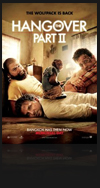 |
 | Battle: Los Angeles
It really should not be that difficult to make a workable alien invasion movie, but the $100-million "Battle: Los Angeles" failed at just that, making the previous year's similar $10-million "Skyline" suddenly look a whole lot smarter in comparison. A tangle of soul-sucking chaos and bombast, it was so excruciatingly apathetic and brain-dead that, were an actual valid thought to enter the proceedings at any time, the entire film would likely have self-destructed from the sheer shock of it all. Directed by Jonathan Liebesman and written on what could have only been a wet cocktail napkin, the film held no regard for lost life, no awe or disquiet to the apocalyptic events on display, no originality to the aliens, and no rhythm or impetus to its scattered pacing and action, which was simultaneously incomprehensible, jumbled, and dull. It couldn't even be bothered to be set in Los Angeles. "Battle: Santa Monica," anyone? |
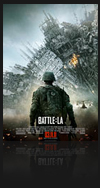 |
 | Conan the Barbarian
A remake that puts into perspective the underrated pleasures of its 1982 predecessor starring Arnold Schwarzenegger, "Conan the Barbarian" was a sword-and-sandals action-adventure so rampantly unpleasant and asinine it probably drove viewers to seek out 2010's heinous (but comparatively competent) "Clash of the Titans" reboot just so they could replace a terrible memory with a less injurious one. Running 112 seemingly never-ending minutes, the film, directed by Marcus Nispel, was a disaster from one end to the next, so calamitously unprofessional it was as if half-minded vagrants found a dinged-up camera next to a few hundred bucks on the street, pulled together a cast of needy, out-of-work actors, and went to town. Like looking at strangers through a kaleidoscope soaked in mud and swamp water, it was a vacant, sexist, soul-smothering trial of tribulations good for the occasional mockery up front before audience despair set in at the staggering cacophony of shit on display. Amazing. Utterly amazing. |
 |
 | 30 Minutes or Less
When deciding on the absolute worst of the worst that 2011 had to offer, the choice was easy. Akin to a sick joke without a punchline, director Ruben Fleischer's profane, gags-a-plenty action-comedy tried to exploit laughs from the tragic 2003 true-crime case of a Pennsylvania pizza man who was killed after being strapped with a bomb and allegedly forced to rob a bank. Unimaginably cruel, putrid, dispiriting, and bereft of even the barest semblance of wit, "30 Minutes or Less" tossed aside cleverness and comic timing for an avalanche of ugly sexual references and a lazy obsession with a particular four-letter word uttered over two hundred times in the span of 78 minutes. Amidst the supposed zaniness, people are brutally shot in the neck and in the stomach, one is beat over the head with a gun, another is lit on fire with a flamethrower, and a bomb detonates in a car with likely fatal results. As the sobering violence heats up, there is not a second's regard for human life or the consequences of such horrid actions. Are we laughing yet? "30 Minutes or Less" was an idea that would have been best left in the dark recesses of its creators' minds. |
 |

 | Hesher
Anarchistic and blazingly human, "Hesher" thrashes onto the scene like the Metallica tunes the title character blasts on his truck radio, first at full volume and then gradually softening to reveal a deeper empathetic propensity. Having premiered to a warm reception at the 2010 Sundance Film Festival, it is both understandable and perplexing why it took well over a year for the film to see an official theatrical release. Profane but honest, at times broadly acerbic and at others close to devastating, the picture may have been too much for close-vested mainstream audiences, yet it delved into universal themes involving familial loss, the reverberations of grief, and the struggle to make some kind of impact on the world with a clarity that should speak loudly to most viewers. Equipped with a top-to-bottom standout cast (headed by Joseph Gordon-Levitt, Natalie Portman, and the phenomenal Devin Brochu), "Hesher" was an uncommonly perceptive cinematic revolution. |
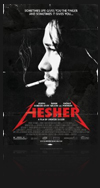 |
 | Take Me Home Tonight
The equally frightening and exciting time between graduation and real life was sublimely depicted and explored in "Take Me Home Tonight," a celebration of a comedy that captured the tone, style and sincerity of a classic from that specific decade without the snarky, self-knowing humor of a modern film trying to make fun of the time period. Instead, it's just a story that happens to take place in 1988, a snapshot of a single fateful night in the lives of a group of post-college-aged pals who sense change is a'coming. The formula, similar to 1973's "American Graffiti," 1993's "Dazed and Confused," and 1998's "Can't Hardly Wait," is strong enough to ably join their company. With a sprawling soundtrack of era-specific gems, the film, directed by Michael Dowse, would at least be diverting just by sheer force of its song collection alone. Fortunately, it's far more than a compendium of tunes, a part-exuberant, part-wistful, all-wise look at people who all sense things will soon never be the same. "Take Me Home Tonight" is that rare, special kind of movie that most viewers should intimately connect with, enduring and growing in popularity with time, its rabid rewatchability factor a priceless attribute that too often goes undervalued by cinephiles. It's an achievement harder than it seems. When accomplished, the experience can be miraculous. |
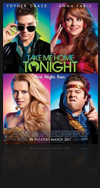 |
 | 3 Backyards
A trio of strangers (Edie Falco, Elias Koteas, Rachel Resheff) living in the same Long Island neighborhood are forced to reevaluate the decisions they've made in their lives over a single sleepy autumn day in "3 Backyards," an exquisitely observed slice-of-life with a genuinely transporting feel for its setting. Written and directed by Eric Mendelsohn, who won the Directing Award at the 2010 Sundance Film Festival, the film stood as a stirring minimalist portrait of man's war with his or her own nature and the fences that their suburban lifestyles have placed them behind. As creatures big and small, predatory and harmless, surround the main characters, and the fields, forests and underbrush present a curious, ever-changing sense of discovery to the paths they take, "3 Backyards" plays like a mischievously foreboding fairy tale. A tonal poem small of means, yet incalculably immense in its exploration of nothing less than the human condition, the film (budgeted at just $300,000) is a testament to how much can be accomplished with few resources and a heap of artistry and ambition. The results stir and marinate in the mind long after it has ended, growing almost more vivid by memory with the passage of time and recollection. |
 |
 | The Help
The idea of a white male writer-director adapting a novel written by a white woman about the social- and race-related issues of a very much black female experience doesn't necessarily sound ideal on paper, but Tate Taylor beat the odds and dodged fears that the material would be biased and/or, for lack of a better term, whitewashed for mainstream readers and audiences. In regards to this lavish, impeccably cast big-screen rendering (featuring the year's most expansive ensemble of award-caliber performances), color truly is blind, the race of its makers playing no noticeable part in the tough, touching, unsentimental telling of marginalized African-American maids struggling to make ends meet while working for privileged Caucasian families in the midst of the U.S. Civil Rights Movement. Not some cinematic approximation of a Hallmark greeting card, but a lovingly crafted, well-balanced drama with the power to open eyes and the potential impact to urge viewers to see things in a different way, "The Help" was a motion picture that staggeringly captured the humor and sorrow that comes with being human and existing in a world that is not always fair. A beautiful story, beautifully told. |
 |
 | 50/50
A lot of potential viewers were likely scared off by the premise of "50/50," loosely based on a true story from screenwriter Will Reiser's life, about a straight-laced 27-year-old guy (Joseph Gordon-Levitt in a career-best turn) who discovers he has cancer. With no stereotypes to speak of and very few contrivances, however, director Jonathan Levine made an uncompromising gem, the kind of film that hits all the right notes as it navigates from gentle, unforced humor to knowing pathos. Usually in movies with tearjerker leanings, one can sense the wheels of superficial calculation squeaking along, but Levine trusted in the reality and urgency of the situation and the sympathetic clarity of his characters to more effortlessly bring emotion to the proceedings. It is beyond refreshing when a studio picture doesn't feel the need to pander to its viewers with lots of soapy, string-laden music and falsely fabricated conflicts. Deep and universal, "50/50" was not about cancer per se (though it is insightful on this topic as well), but about the unexplainable forces in life that are so much bigger than ourselves. |
 |
 | Melancholia
Two very different sisters (2011 Cannes Best Actress winner Kirsten Dunst and Charlotte Gainsbourg) have decidedly disparate reactions to the impending end of days in "Melancholia," Lars Von Trier's grandiose, fiercely unconventional take on the disaster movie genre. A provocative, startling, semi-pessimistic, ultimately logic-driven view to the apocalypse that had none of the flowery, reassuring spiritualism of 2011's "The Tree of Life," the film's view of death as the finite end, a cutting of the chord that leads to pure nothingness, was both indescribably horrifying and oddly reassuring—a fear that many have because it is difficult to comprehend not existing, but also calming if for no reason other than the knowledge that every living being that has come and gone before us has been through the exact same thing. In the face of oblivion, humanity ultimately remains. "Melancholia" was visually splendid and dramatically rapturous, hopeful and despairing at once and just plain unforgettable. |
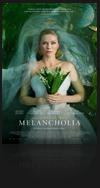 |
 | Bridesmaids
The all-around best mainstream comedy in at least five years, "Bridesmaids" was a true gift—rousingly smart, thoughtful, imaginatively witty, and addictively entertaining. Make no mistake, this was not another screechy, shallow, smug, hair-brained wedding-based rom-com, nor was it a female version of 2009's snide, unpleasant "The Hangover," as so many were quick to incorrectly label it as. Instead, "Bridesmaids" tells a fully-formed, well-developed story, rich in astute character work and deeply-felt, legitimate themes involving the sometimes difficult struggle to get it all together—life, work, relationships, self-esteem—at an age when friends and peers seem to be passing you by. From all of this comes a surprising emotional resonance that makes its consistent laughs and unbridled lunacy all the sweeter. Credit must be paid to director Paul Feig, screenwriter Annie Mumolo, and co-writer/lead actor Kristen Wiig, who received her first solo headlining gig and not only knocked it out of the park, but out of the whole hemisphere. Let's not mince words, either; Wiig is brilliant here—hilariously uninhibited, effortlessly appealing, instantly relatable, and truly touching. A destined comedy classic that keeps one-upping itself with memorable scene after memorable scene, "Bridesmaids" knew how to be crowd-pleasing without sacrificing itself to empty-headed callousness or shoehorned distastefulness. Above all, Wiig is the secret ingredient. She makes nearly every male comic performer working in feature films today look like an inferior slacker. |
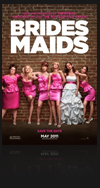 |
 | Young Adult
Director Jason Reitman and scribe Diablo Cody joined forces for a "Juno" follow-up completely different from "Juno" with the even better "Young Adult," a burnt-black dark comedy far removed from the warm and fuzzies that dared to defy every expectation and narrative convention that moviegoers had previously been raised upon. In a character study of uncommon originality and perceptiveness with a protagonist as fascinating as nearly any seen in 2011, Charlize Theron fearlessly dug her claws into Mavis Gary, a once-popular high-schooler who, as a 37-year-old ghost writer in need of reclaiming her former victories, returns to her hometown to win back her now-married-with-child ex-flame (Patrick Wilson). Mavis is neither exaggeration nor cartoon, but she does exhibit some of the more unpleasant traits of humanity. She may or may not be capable of change, but as a woman both clueless and poignantly adrift in her own inflated ego, Theron's performance is one of the most complex and layered of the entire year. Relatable enough to earn laughter through the pain and non-judgmental enough to feel for every one of its characters, most of all Mavis, the film stands firmly on the line between earnestness and snarky irreverence without losing its equilibrium. Pretty much pitch-perfect from start to finish. |
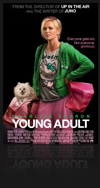 |
 | The Artist
In a motion picture bursting with too many pleasures to count, the most miraculous achievement of "The Artist" was its simple, genuine, unabashed earnestness. The concept of making a silent movie in the twenty-first century sounds innovative, but also like a tissue-thin gimmick. How could a filmmaker avoid campiness, artifice, and self-aware mockery while tackling a long-abandoned format that hasn't been widely practiced, let alone commercially viable, for nearly eighty years? Somehow, some way, and with a bit of obvious care and serendipitous magic, French writer-director Michel Hazanavicius achieved what one would have assumed to be nearly impossible. By flawlessly recreating the comfortable structure, the giddy, "let's-put-on-a-show" energy, the sumptuous black-and-white photography, and the exuberant, slightly exaggerated acting style of a pre-talkies bygone era, the film was born anew as so much more than just a mere technical exercise. That the story it tells is one of poignant, breathtaking beauty, speaking about the drive to create art within a forever evolving world as much as it is an innocent, bittersweet, just plain adorable romance, is gravy. "The Artist" was unconditional bliss, no less than a gushing ode to cinema itself. Pennies from Heaven, indeed. |
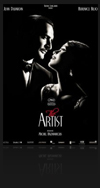 |
 | Drive
In a year that saw the release of several strong, even great, films, but few with the power to knock one's socks off, "Drive" was like a godsend from the cinematic heavens—an air-tight, stripped-down, heart-rending, blood-drenched, anxiety-fueled godsend, but a godsend all the same. Nicolas Winding Refn won the Best Director prize at the 2011 Cannes Film Festival, and it's obvious why. His masterful precision over this material, from a screenplay by Hossein Amini, based on the novel by James Sallis, is like a stab straight through the jugular, powerful enough to invigorate other filmmakers to up their game in a big way and to show them—and perhaps Hollywood at large—how the sheer craft of cinema can work both as towering high art and rapturous, lump-in-your-throat entertainment. A cool, introspective, devotional Ryan Gosling reached a new lofty plateau in his career reserved for the very best actors of his or any generation as a part-time stuntman and mechanic whose burgeoning love for his neighbor (Carey Mulligan) and extracurricular activities as a getaway driver get him into a bubbling pot of scalding-hot water. A constantly unpredictable crime thriller; an edgily tense, aesthetically superb action movie; a cutthroat, uncompromising revenge pic; a sad, lyrical love story—"Drive" aces through each one while making it look like the easiest thing in the world to accomplish. The film is at once unmercifully violent, methodically straightforward, sumptuously layered, and dramatically rich, pulp fiction cranked up to eleven and injected with a welcome new depth and legitimacy. Complimented ever more by a soundtrack of moody, '80s-inspired synth beats that helped to illuminate the very being of its purposefully enigmatic central character, "Drive" was the most real, true, and passionate motion picture of the year, enough to replenish a doubting cinema lover's soul. |
 |
|
© 2011 by Dustin Putman
 |
|
|
|